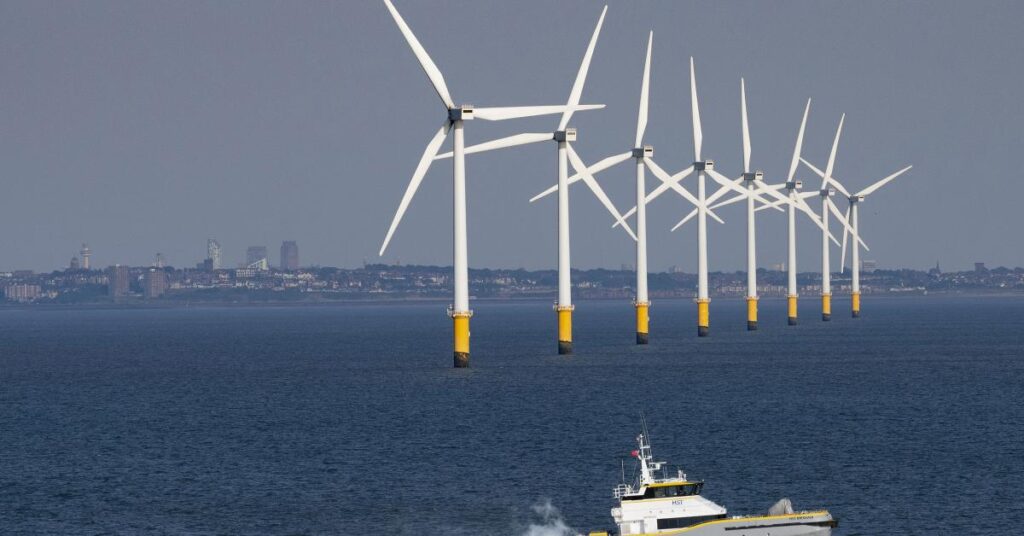In a groundbreaking development, the Biden administration has reportedly bypassed significant fees designed to ensure the dismantlement and reclamation of infrastructure at the end of a project’s life cycle, for an offshore wind project. As part of a bold move towards his climate agenda, President Joe Biden is fervently endorsing an extensive offshore wind project construction along the East Coast. This comes at a time when the offshore wind industry is grappling with financial exigencies, raising eyebrows at the potential aftermath if these companies are unable to remove wind farms due to bankruptcy.
Protect The Public Trust (PPT), a government watchdog group, has obtained documents revealing that the Bureau of Ocean Energy Management (BOEM) made an exception to the fee rule for Vineyard Wind—offering this financial reprieve as a result of decommissioning costs. BOEM justified that the financial assurance was “unnecessarily burdensome” for the project holders because, at the time, they weren’t reaping income from the project. Due to the utilization of “proven wind turbine technology” and guaranteed electricity sale prices in the project’s contract, BOEM deduced that the project will have a predictable income throughout its life.
Historically, the Department of Interior has mandated these bonds from oil and gas producers to shield taxpayers from becoming the decommissioning bearers for bankrupt companies or those operational before bonding requirements. California, left decommissioning 23 federal offshore platforms amounting to $1.7 billion, exemplifies this; the financial responsibility for recovering these costs remains moot. There are also numerous onshore orphaned wells countrywide that the federal government is attempting to plug—a daunting task since several of these wells existed before bonding requirements were enforced, leaving no legal owner to hold accountable monetarily.
In Wyoming, the collapse of an industry that materialized a decade ago to capitalise on coal beds for natural gas left the state with countless wells to plug and no businesses to bear the brunt. Yet, despite these historical precedents, the Biden administration is dismissing critical protection measures for offshore wind projects. In contrast, it is amplifying bonding requirements for oil and gas operations—a step hailed by environmentalists but critiqued by industry groups.
Kathleen Sgamma, president of the Western Energy Alliance, inferred the administration’s manoeuvre to be an attempt to mitigate funding for reclamation efforts. Instead, it was perceived as a strategy to restrict operations by inflating costs. Elmer Peter Danenberger III, a petroleum engineer with extensive experience, elucidates on his blog, “Bud’s Offshore Energy,” that BOEM’s choice to waive Vineyard Wind’s responsibilities considerably hikes public risk exposure.
He explains further that BOEM, by granting the waiver, invoked a general departure authority, designed for exceptional circumstances, which should not be used broadly. He points out that the current waiver could easily apply to other wind developers– drawing a grim picture that if Vineyard Wind fails and cannot fully fund the decommissioning account promptly, the public may face significant costs in removing the wind towers.
In a striking conclusion, Danenberger emphasizes the need to prioritize safeguarding the public from decommissioning liabilities, irrespective of whether the project involves oil, gas or wind energy. The recent developments bring into sharp focus the need for steadfast commitment to public protection safeguards while simultaneously navigating the complex landscape of renewable energy transition. The story serves as a stark reminder of the essential duty of regulators to balance the scales of development and public interest, given the high stakes and the shared benefits and burdens of our collective energy future.



